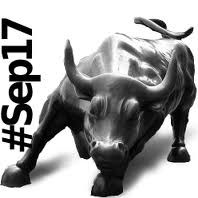 On September 17, 2011, a leaderless resistance group took over a small public park in the heart of the financial district of New York City. Fed up with the dominance of the financial industry in politics and the direction of the economy, the groups message took hold spreading from city to city and around the world. The message was heard, “We are the 99%”
On September 17, 2011, a leaderless resistance group took over a small public park in the heart of the financial district of New York City. Fed up with the dominance of the financial industry in politics and the direction of the economy, the groups message took hold spreading from city to city and around the world. The message was heard, “We are the 99%”
We are the 99 percent. We are getting kicked out of our homes. We are forced to choose between groceries and rent. We are denied quality medical care. We are suffering from environmental pollution. We are working long hours for little pay and no rights, if we’re working at all. We are getting nothing while the other 1 percent is getting everything. We are the 99 percent.
That message change the conversation in the media and in the caverns of government. It brought together people of many colors, genders and political persuasions. Yes, Tea Party Republicans and left wing disenfranchised Democrats stood together on economic and social issues, disgusted with undue influence of corporations on government, particularly from the financial services sector and the unequal wealth distribution in the US. Thus began the Occupy Wall Street movement, 732 days ago.
For two months, the group camped in Zuccotti Park, renaming it Liberty Park, meeting publicly using a unique human microphone when they were denied a permit for the use of “amplified sound,” including electric bullhorns, providing information, building the People’s Library, providing medical care, as well as, feeding the protestors, visitors and the homeless who flocked to the park. The spontaneous marches and demonstrations brought support and opposition. Much of the opposition from the corporate industry whose crimes and undue influence in government were coming under the public microscope
On November 15, 2011, shortly after midnight and a one hour notice to leave, the New York City Police Department raided the Zuccotti Park encampment, destroying private property and arresting over 200 occupiers, including journalists.
Occupy may not be as noticeable as it was back then but the movement is still a force with Occupy the SEC, focused on advancing lawsuits to push federal agencies to engage in more regulation of Wall Street and Occupy Our Homes which is engaged in direct action to protect homes from being improperly foreclosed by banks and have pressed the Justice Department to prosecute Wall Street executives.
In the aftermath of Hurricane Sandy, Occupy Sandy sprang from the rubble and misery to aid the stranded poor and working in NYC’s housing projects and neighborhoods that were forgotten by Mayor Bloomberg and his band of bureaucrats who were focused on getting their Wall St. cronies back in business. They were vital in saving lives of the sick and elderly stranding in high rises providing note books of information of those in need to Doctors Without Borders in their first mission in the United States. Occupy Sandy operated in all five boroughs and New Jersey with over 70,000 volunteers with just a Tweet and they are still there assisting with rebuilding and helping those still in need.
Occupy is here to stay. We are the voices of the 99% and we will be heard. The revolution continues worldwide.

 On September 25, 1789, the first Congress of the United States adopted 12 amendments to the U.S. Constitution–the Bill of Rights–and sent them to the states for ratification. Ten of these amendments were ratified in 1791. In November 1789, North Carolina became the 12th state to ratify the U.S. Constitution. Rhode Island, which opposed federal control of currency and was critical of compromise on the issue of slavery, resisted ratifying the Constitution until the U.S. government threatened to sever commercial relations with the state. On May 29, 1790, Rhode Island voted by two votes to ratify the document, and the last of the original 13 colonies joined the United States. Today, the U.S. Constitution is the oldest written constitution in operation in the world.
On September 25, 1789, the first Congress of the United States adopted 12 amendments to the U.S. Constitution–the Bill of Rights–and sent them to the states for ratification. Ten of these amendments were ratified in 1791. In November 1789, North Carolina became the 12th state to ratify the U.S. Constitution. Rhode Island, which opposed federal control of currency and was critical of compromise on the issue of slavery, resisted ratifying the Constitution until the U.S. government threatened to sever commercial relations with the state. On May 29, 1790, Rhode Island voted by two votes to ratify the document, and the last of the original 13 colonies joined the United States. Today, the U.S. Constitution is the oldest written constitution in operation in the world.
Recent Comments